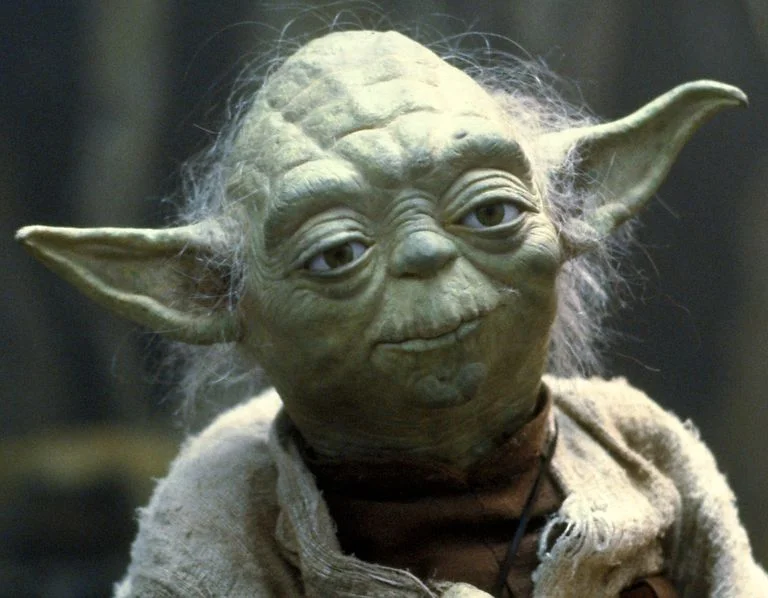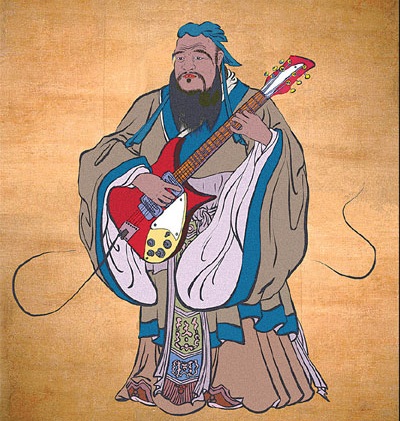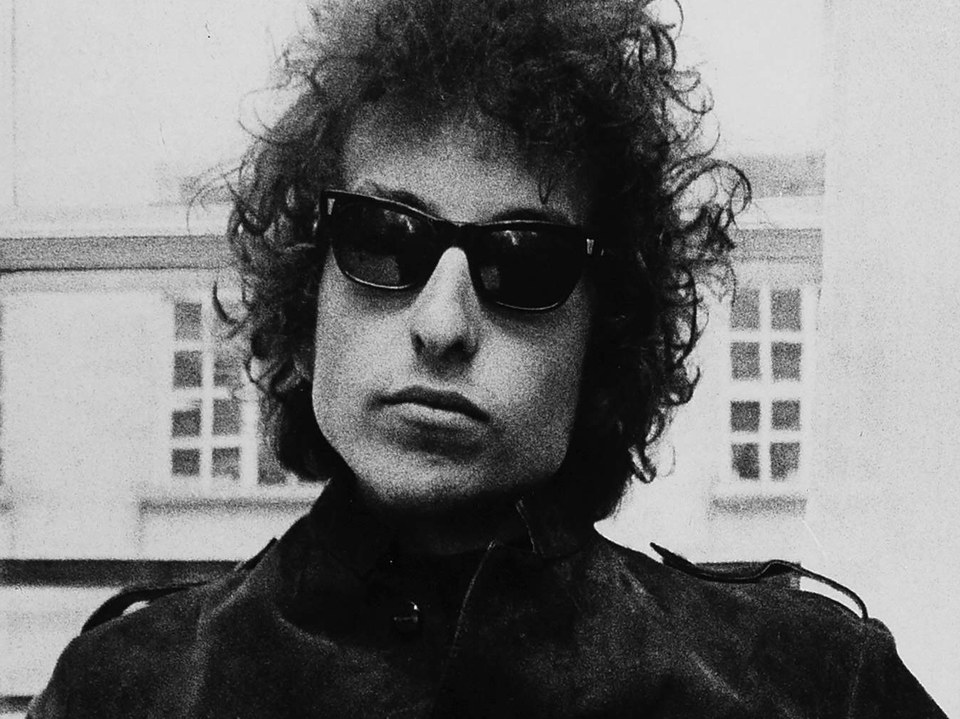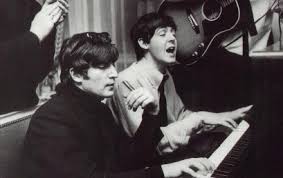By The Landlord
“He who knows all the answers has not been asked all the questions.” – Confucius
“Knowledge speaks, but wisdom listens.” – Jimi Hendrix
“Count your age by friends, not years. Count your life by smiles, not tears.” – John Lennon
“Many of the truths that we cling to depend on our point of view.” – Yoda
What is wisdom? Is it intelligence? Not really. Intelligence, a song topic we’ve covered before, and one that still remains one of the Song Bar’s most re-read intros and playlist results, is different. Intelligence, unlike wisdom often goes hand in hand with ignorance. And brain power, in various forms, such as oxymoronic “military intelligence”, is rarely, if ever an expression of wisdom. Nor is quality of being clever, nor the practical tool of using cleverness, the same as wisdom. So where can we find wisdom, and how might it be expressed in song lyrics, with individual lines or across the whole song, whether on very subject of wisdom itself, or in the form of wise words on any aspect, about ourselves, life, the universe and everything?
This week the Song Bar is so packed out with distinguished visitors eager to tell us more about this topic, there’s barely room to move. Our visitors seem be grouped like parts of an orchestra, playing on different themes, melodies and riffs of this topic, and from behind the counter I’m waving an improvisational baton in their direction. But is there any overall pattern? Wisdom appears to be a mixture of close inspection and enjoyment of the small details, and an ability to glimpse the bigger picture, to distil it down into something both complex and surprisingly simple, like a smooth, single malt whiskey. In wisdom comes clarity. They may talk about wisdom, with wisdom, but your song suggestions simply have to contain lyrics that can have wisdom about anything.
Confucius, teacher, philosopher, editor leader, and guitar hero
Wise beginnings
Let’s start with that great teacher, editor, politician, and philosopher Confucius, born, it is thought, on 28 September 551BC in the district of Zou (鄒邑) near present-day Qufu. But it turns out he did not have that name at all and that Confucius is a Latinised form of the Mandarin Chinese "Kǒng Fūzǐ" (孔夫子, meaning "Master Kǒng"), and was only coined in the late 16th century by the early Jesuit missionaries to China. That mission didn’t go too well. Perhaps that’s why unlike with a sense of clarity, his western name is paradoxically a bit like the word confusion, and as a result on Monday night I might not be able to resist the temptation, after song nominations close and the pun section begins, to suggest that famous Temptations song, Ball of Confucius. Sorry, couldn’t resist.
But Confucius, or Master Kǒng, was not confused in the slightest. He is the go-to guy for wisdom in human history, oft quoted, but inevitably someone whose advice isn’t always followed. “By three methods we may learn wisdom: First, by reflection, which is noblest; Second, by imitation, which is easiest; and third by experience, which is the bitterest.” Three methods? Oh wait, what was the first again? In the internet age we have no attention span …
Where else might we start to reach or understand wisdom? There’s a big table, nay tables now pushed together, and crowded with great minds keen to show us where to begin. “To conquer fear is the beginning of wisdom,” says the philosopher Bertrand Russell. “Well, my friend, I want another whisky, and honesty is the first chapter of the book wisdom,” adds Thomas Jefferson.
“My friends. Surely wonder is the beginning of wisdom,” adds Socrates, ordering a flagon of wine. “I feel that knowing yourself is the beginning of all wisdom,” adds Aristotle, happy to pour himself another.
Even Oprah Winfrey is here, and not feeling intimidated at all by these intellectual heavyweight, begins by saying it is wise to “turn your wounds into wisdom.” Go Oprah!
Wise style
Wisdom, whether it is sought or stumbled upon, then expressed in lyrics or otherwise, sometimes needs to come with a certain style. A wisecracking ‘wise guy’ might get a few laughs, but his wisdom won’t stand the test of time. Perhaps clear, clever clean rhyme might help, and if you can’t manage that, a certain memorable profundity and a distinctive mode of expression. Perhaps the best known figure of wisdom, to whom I hinted in the headline to this topic, is Star Wars’ Yoda, a form of cod-Confucius, quasi-Chinese mini figure who has a hint of Einstein as well as some amiable old rabbi about him. So apart from being a smart-talking super-fighter of consummate calm, and ticking several demographic boxes, does he actually say anything wise? Yes, sometimes.“You must unlearn what you have learned.” Dammit! He’s right!
But the key to Yoda’s success is that classic inversion of phrase, which makes it sound even “wiser”. “Difficult to see. Always in motion is the future,” he says. Blindingly obvious, but everyone nods and stares at him, each like a child wondrously in awe, staring at Santa. “Truly wonderful the mind of a child is,” he adds, mischievously. He gets away with every time. Four legs a table has. Genius.
What other styles are necessary for wisdom to work? Calm, for sure. “Angry people are not always wise,” confirms Jane Austen, in Pride and Prejudice. And another author, Patrick Rothfuss, writing in The Wise Man's Fear, confirms something very similar: “Half of seeming clever is keeping your mouth shut at the right times.”
Yoda’s old, as are many of the other great minds sitting round the Bar tables today, but does that make them wise? “No, that is the great fallacy: the wisdom of old men. They do not grow wise. They grow careful.” says another old man Ernest Hemingway, ordering many more drinks, and quoting from his own book, A Farewell to Arms.
Wisdom and honesty
Another key to wisdom is the ability to admit that you’re, well, let’s face it, not that wise at all. Ignorance isn’t necessarily bliss, but modesty seems to help you get a bit smarter.
“The only true wisdom is in knowing you know nothing,” says Socrates, back for another round and generously buying an even bigger sharing flagon.
Socrates: wisdom in humility, generous with the wine
And now that author of the Game of Thrones series, George R.R. Martin, weighs in with a clever quote from his work. “It is one thing to be clever and another to be wise.”
Big authors? We’ve got’em all here. “We can know only that we know nothing. And that is the highest degree of human wisdom,” says Leo Tolstoy ,slapping a big fat copy of his War and Peace on the table.
“Well, mes amis, the more I read, the more I acquire, the more certain I am that I know nothing,” adds Voltaire, with a shrug, and more classic French gesticulation.
But if you want true humility, the best man for the job (although, naturally he would never admit it) is Mahatma Gandhi. “It is unwise to be too sure of one's own wisdom. It is healthy to be reminded that the strongest might weaken and the wisest might err.”
William Shakespeare agrees on that, because in As You Like It, we are told “the fool doth think he is wise, but the wise man knows himself to be a fool.”
Too much knowledge
And so the opposite of wisdom can be thinking you are so, because of your knowledge. Perhaps that is why, in a time we have access to more knowledge than every before, in a time of internet and opportunity, society never seems to be more stupid, and awash with confusion and ignorance. But that has happened before. “The public have an insatiable curiosity to know everything, except what is worth knowing.” says Oscar Wilde, with an arched expression.
“Yes indeed. The saddest aspect of life right now is that science gathers knowledge faster than society gathers wisdom,” says Isaac Asimov.
And now Bob Dylan has slipped in, slinging his guitar, and throws out this line. “Sometimes it's not enough to know what things mean, sometimes you have to know what things don't mean.”
Bob’s wisdom can be as much about lack of meaning
Knowledge of self
Another great strand of wisdom seems that while admitting you don’t know that much, you at least should aspire to knowledge of self. “Knowing others is wisdom, knowing yourself is Enlightenment,” says another ancient heavyweight, Lao Tzu, and enlarges on it thus: “Knowing others is intelligence; knowing yourself is true wisdom. Mastering others is strength; mastering yourself is true power,” quoting from the Tao Te Ching.
But wisdom isn’t always in the head. “There is more wisdom in your body than in your deepest philosophy,” says one of our regulars, Friedrich Nietzsche. “Yes, my friend,” says Charles Dickens, leafing through his Hard Times. “There is a wisdom of the head, and ... there is a wisdom of the heart.”
Friedrich and Charles’s comments lead us on to another theme of wisdom – simplicity, a quality that seems to unite all the great truths.
Wisdom and simplicity
“The happiness of the drop is to die in the river,” says Imam Al-Ghazali, rather beautifully.
“The invariable mark of wisdom is to see the miraculous in the common,” adds Emerson, earthily.
And to add to this poetic section, here’s Rabindranath Tagore:
“The small wisdom is like water in a glass: clear, transparent, pure. The great wisdom is like the water in the sea: dark, mysterious, impenetrable.”
What kind of wisdom comes in music, and lyrics? Probably in Tagore’s terms, the small kind. Here’s Paul McCartney, who has now wandered in the Bar to play a couple of numbers on our piano. Sorry if it’s a bit decrepit and out of tune, Paul. “No problem, fella,” he says and then sings the extraordinarily simple, yet profound, double-meaning line: "Take a sad song, and make it better.” Something we could all aspire towards.
And then he goes on to reveal how, towards the end of the Beatles, when times were extremely trying, he had a dream about his dead mother who came to comfort him, and wrote it down in this song:
“When I find myself in times of trouble Mother Mary comes to me, speaking words of wisdom ‘Let it be’. And in my hour of darkness She is standing right in front of me, speaking words of wisdom ‘Let it be’. It anything is balm-to-the-soul wisdom, coming in repetition, that is it.
Paul and John. Wisdom in simplicity?
Which leads to to the wisdom’s relationship to music itself. Here we have an extraordinary table of talents who mix simplicity with complexity. On the latter front, here’s Ludwig Van Beethoven: ”Music is a higher revelation than all wisdom or philosophy."
Somehow music when linked to wisdom, seems to have its own language. “Music can name the unnameable and communicate the unknowable,” says Leonard Bernstein, briefly picking up the baton.
Walter Lippmann is more sceptical. “Yes, but it requires wisdom to understand wisdom: the music is nothing if the audience is deaf.”
Frank Zappa, not short of certain amount of the stuff himself, decides to distil it all down in his own way. ”Information is not knowledge. Knowledge is not wisdom. Wisdom is not truth. Beauty is not love. Love is not music. Music is the best."
Charlie Parker isn’t just here to blow his own horn, although he’s very welcome to join Macca over on the piano if he likes. He says music’s wisdom comes from within. ”Music is your own experience, your own thoughts, your wisdom. If you don't live it, it won't come out of your horn.”
Meanwhile the wonderful Californian songwriter Cass McCombs captures the art in a bigger perspective of the personal and the historical. "Music is a marriage of the feelings of the living with the wisdom of the dead.”
Talking of the dead, the very opposite of wisdom, war, is deemed to be in part due a lack of or favourite artform, and this message spans the centuries. Confucius is back, now with this timeless message: “When music and courtesy are better understood and appreciated, there will be no war.”
And although separated by centuries and thousands of miles, Molière is with him on that: All the disorders, all the wars which we see in the world, only occur because of the neglect to learn music.”
Music offers wisdom, not war
But now it’s time to seek our own wisdom in the form of song lyrics. “A wise man will make more opportunities than he finds.” says the 17th-century essayist Francis Bacon. There’s no time to waste. “The hours of folly are measured by the clock; but of wisdom, no clock can measure,” says William Blake.
I hope this intro has helped make wisdom clearer, but then again, according to Paulo Coelho “Don't waste your time with explanations: people only hear what they want to hear.” Not here, I’m sure! And so let’s leave you with another war-metaphor example, offered up by this week’s playlister guru for inspiration, and a song by Eels, P.S. You Rock My World, previously chosen for another topic. “A careful man tries to dodge the bullets / While a happy man takes a walk.”
And that wise and happy man taking walk this week behind the Song Bar counter to create playlists from your song suggestions is the brilliant barbryn! Deadline is this coming Monday at 11pm UK or earlier if notified, for playlists published on Wednesday. A word to the wise … stay here and see what happens next.
New to comment? It is quick and easy. You just need to login to Disqus once. All is explained i in About/FAQs ...
Fancy a turn behind the pumps at The Song Bar? Care to choose a playlist from songs nominated and write something about it? Then feel free to contact The Song Bar here, or try the usual email address. Also please follow us social media: Song Bar Twitter, Song Bar Facebook. Song Bar YouTube. Subscribe, follow and share.






